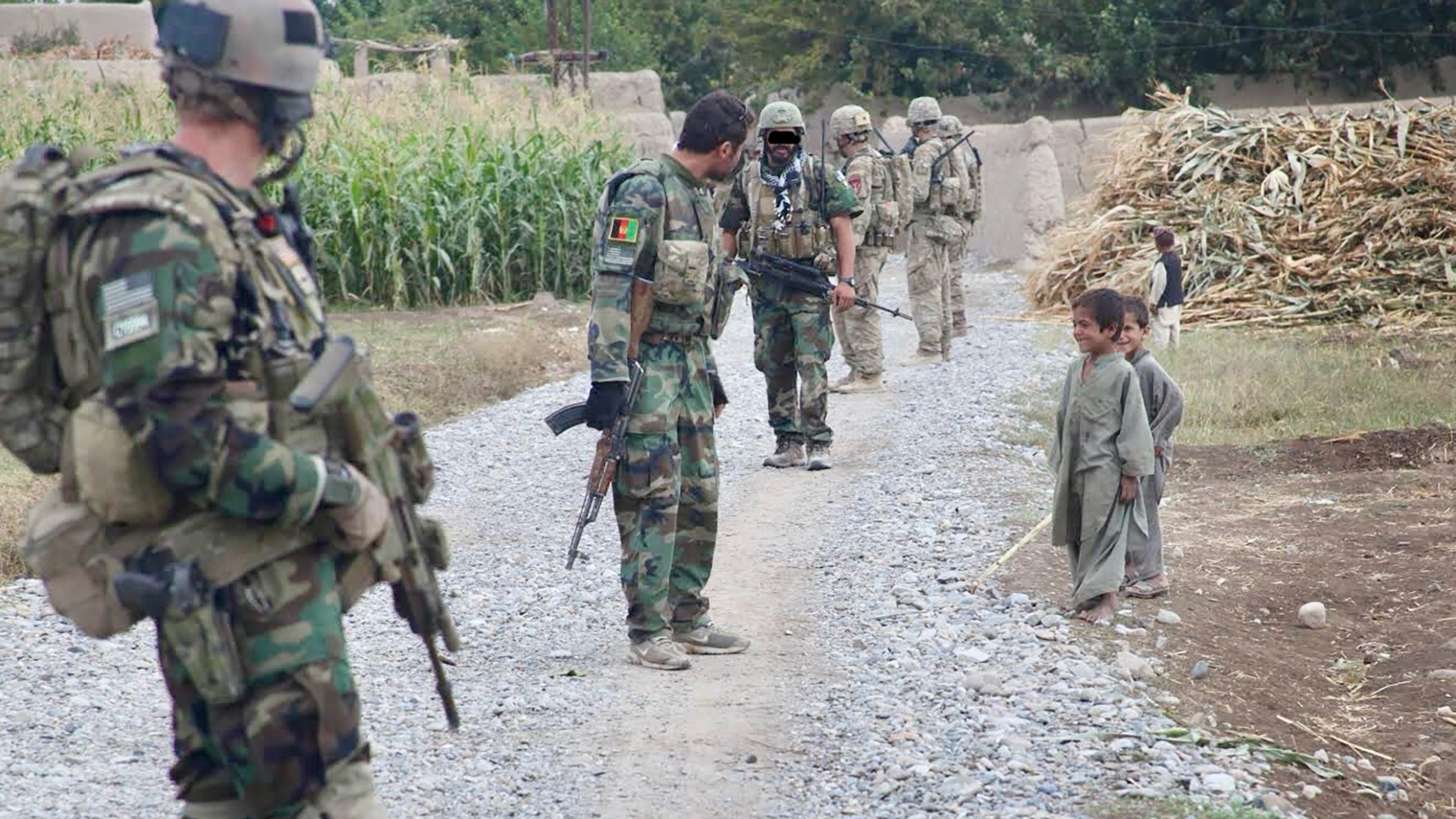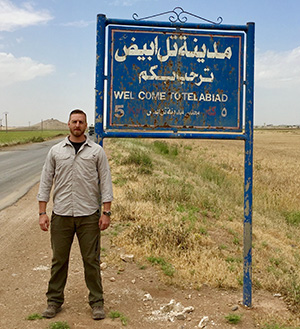On the internet, where we debate anything and everything gun and self-defense related, a common refrain one will encounter is, “I know what I’m talking about. I served X amount of years in the service as such and such in wherever.” As a boy in the ‘80s and ‘90s, I took the advice of Special Operations veterans especially seriously and favored their insight above all others. I grew up and joined the Army and was privileged to serve most of my 20-year career as a Special Forces Soldier, often referred to as a Green Beret. Now that I’m retired and teaching private citizens and writing articles myself, I’ve got a different perspective than I did when I was a wide-eyed youth. I learned a great deal in my Special Forces career, but as I spent my off-duty time stateside as an armed private citizen, and especially once I retired and began training private citizens, I was struck by all the important knowledge I didn’t learn in Special Forces.
Self-Defense and the Law
If I were to teach and write based exclusively on my Special Forces training and experience, self-defense law in the US would be by far the largest gap in my relevant knowledge. Unfortunately, it is also among the most important areas of study for an armed citizen, second only to the fundamentals of safe gun handling. The first Special Operations Forces (SOF) Imperative is “Understand the operational environment.” In an overseas deployment, part of this was understanding the “rules of engagement” regarding under what conditions we were permitted to use what levels of force. In the US, we need to understand our operational environment in part by knowing our state and local laws and the general legal principles of self-defense. Not only will this keep us from overreacting and facing charges, but this will help us to recognize when the legal threshold for justifiable force has been met so we don’t underreact and put ourselves at a disadvantage when we need to protect ourselves.
In my Special Forces career I never received training on legal use-of-force for self-defense in the US. Fortunately, I recognized the need for it, and in addition to paying attention in my license-to-carry course, I sought out as much information as I could from relevant subject matter experts (SMEs). I read books and attended seminars from SMEs such as Massad Ayoob and others, spoke to my local peace officers and prosecutors within the district attorney’s office when the opportunity arose and worked very hard to gain an understanding of my unique operational environment as an armed private citizen.
If you’re seeking information about self-defense and use-of-force law, then it is important to understand that just because someone has Special Operations experience, that alone does not make their advice sound on this topic. If you ask them for the sources of their advice and they cite relevant, respected sources, then you can probably take their guidance seriously. If you ask them for sources and they reply with, “I was Special Forces/Force Recon/whatever, so I know what I’m talking about,” you probably should consider looking elsewhere for more reliable information.
Broad Weapons Expertise
This is the one many will find the most surprising. My Special Forces training and experience provided me with expertise, or at least familiarity, with an astoundingly broad range of military weaponry. I spent considerable time in my career using U.S. and foreign military rifles, handguns, sniper rifles, machine guns, grenade launchers, rocket launchers, recoilless rifles, mortars and just about everything else you can think of. However, almost none of those are relevant to the private citizen interested in personal protection, and the areas which are most relevant are probably the most limited.

A common sight on the battlefield. Thankfully, not a common sight in America.
Take handguns for example. In my career I carried and shot the Beretta 92, the 1911 and the Glock 26 and 19. That’s it. While special operations units typically put far more emphasis on pistol marksmanship than conventional units (which shoot pistols very little), the only types of pistols Special Forces taught me about were the ones it provided me to carry. So while my level of pistol shooting skill during my career was better than the typical gun owner, I was no more qualified to answer the question “What concealed carry pistol should I get?” than any other layman, if I was solely relying on my Special Forces training. This is worth remembering when soliciting advice about the strengths and weaknesses about specific guns from someone simply because they’re a Special Operations veteran. They may just recommend the handgun they know, which is the one issued to them, as I confidently did as a very young man (and cringe at the memory).
When I retired and wanted to begin teaching, I asked myself, “What don’t I know?” Two gaps I immediately identified in my knowledge base were revolvers and shotguns. My only exposure to shotguns in my military career was using short-barreled shotguns for breaching doors, and I had zero exposure to revolvers. Candidly, my Special Forces training had biased me to think, “Shotguns and revolvers are dumb, and everybody needs an AR-15 and a semi-automatic pistol that holds 15 to 18 rounds.”
Realizing that some people would come to me for private lessons with the shotguns and revolvers they already owned, I began taking as many open-enrollment shotgun and revolver classes as I could from relevant SMEs. I quickly realized that for the mission of the armed citizen, shotguns and revolvers are more than up for the task. It’s true I would not want to go into the mountains of Afghanistan with a 12-gauge pump shotgun and a six-shot .357 Mag. revolver, but that’s not what a private citizen arms themselves for, is it? If someone is sufficiently skilled and has a pump shotgun for home defense and a K-frame revolver for concealed carry out and about, they’ll be able to handle their business.
I’ve seen fellow special operations veterans make sweeping generalizations on the internet such as, “It’s a lot harder to teach someone to use a shotgun or a revolver than an AR-15 pattern rifle or a semi-auto pistol.” I used to think the same thing, but that was just because I didn’t know how to use them expertly myself, much less teach others to do so. It would have been easy for me to think, “As a Special Forces Soldier I don’t have any experience with these guns, therefore they’re dumb and useless for everyone, everywhere, all the time.” Fortunately, I’d collected quality mentors from various backgrounds over the years, who helped me see that Special Forces training and experience is only a slice of what’s out there, rather than being the final word on best practices for private citizens in Iowa, Oregon, or Georgia. So while a Special Operations veteran might know more than you about certain topics, that professional experience alone does not make someone an encyclopedic expert on all things guns in every area.
Concealed Carry… Sort Of

Yes, there is a gun in this photo.
In U.S. Army Special Forces, we frequently deploy to uncertain environments that are not combat zones, but where there is heightened risk. In some of these places we might carry concealed. At certain points in my career, this manifested itself as an authorization to carry in civilian clothes, but with no specific training and an expectation that we just figure it out. At other points in my career when I was doing more specialized work, I did receive quality training in how to carry concealed and learned a lot about quality gear and techniques through trial and error. That said, the vast majority of U.S. military troops don’t get any training or even professional experience at carrying concealed on the job. Even within Special Operations, it is something on which only a certain percentage of personnel are going to get training and experience.
Conclusion
Ultimately, I learned a great deal during my career that’s been helpful to me and to my students regarding concealed carry and the armed citizen lifestyle. I learned risk management, contingency planning, a decent level of pistol marksmanship, medical skills, training plan development and many other helpful skills. “Special Forces veteran” doesn’t translate to “expert at everything,” however. Don’t be afraid to ask a Special Operations veteran to explain the specific source of their knowledge, particularly when it comes to advice on non-Special Operations-specific topics like self-defense law, handgun selection, or concealed carry best practices. If they’re competent they’ll likely answer your questions without hesitation. If they fall back on the general, “I was in XYZ special operations unit,” and refuse to elaborate further, you might want to look elsewhere.
Read the full article here

